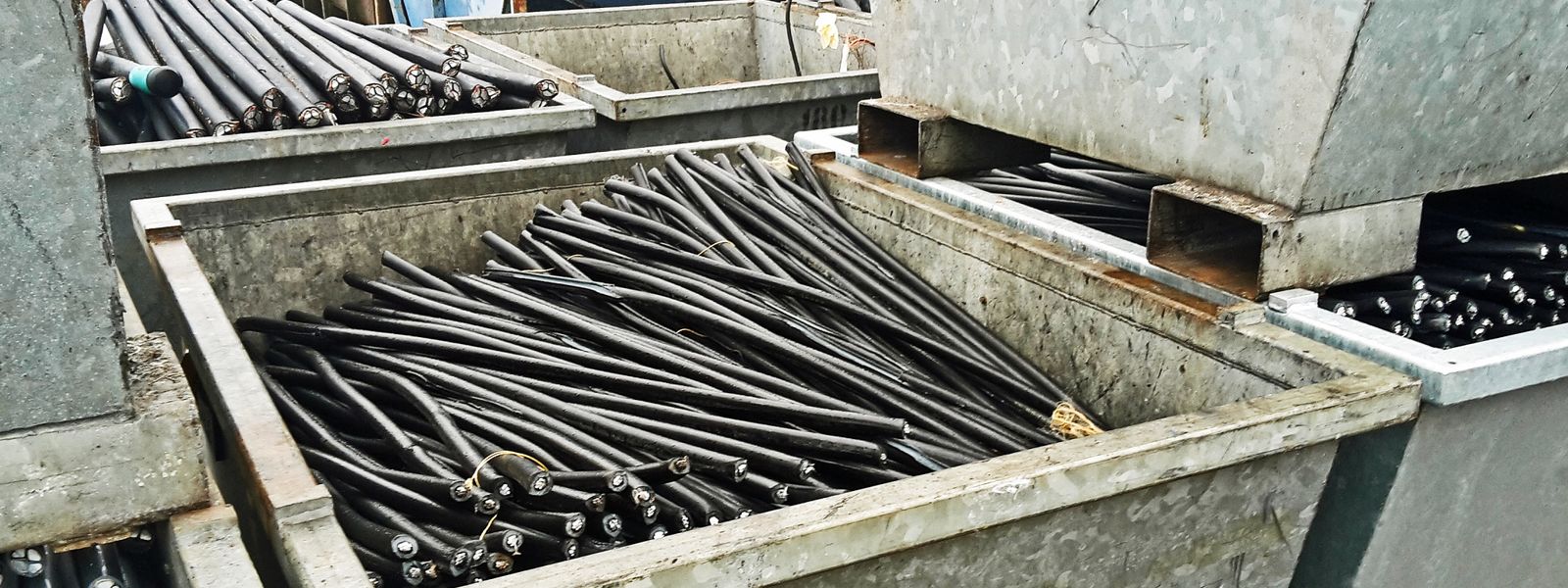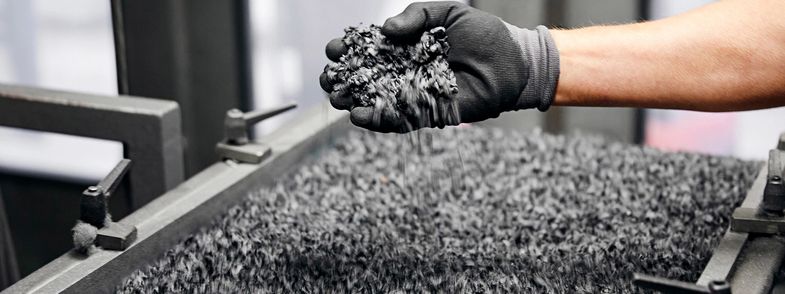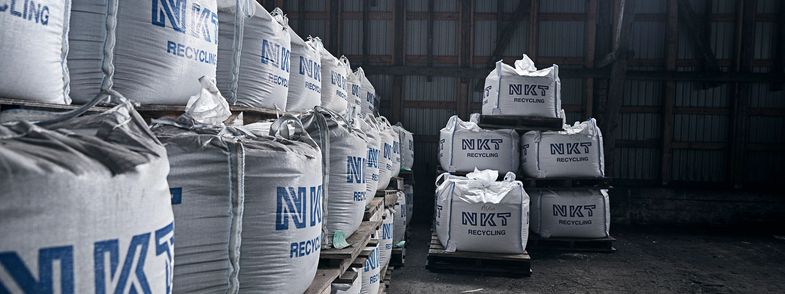NKT is turning recycling into circularity
11 mar 2021
In the 1960's, in a market without environmental requirements or regulations, NKT pioneered the first methods to recycle cable scrap and for more than half a century, NKT has developed best practice processes. The legacy of recycling cable scrap continues in NKT to this day and ensures re-use of materials and sustainable disposal of non-recyclable components.
- Aktualności: bieżące wydarzenia i informacje prasowe
- NKT is turning recycling into circularity

The need for recycling of production scrap from power cables has increased steadily over the years, reflecting our society’s increased focus on re-use of the resources.
All production scrap from our cable production sites in Asnaes, Denmark and Falun, Sweden, is sent for recycling to be processed. By breaking down the cable scrap into its elements (plastics and metals), as much as 97% of the total amount of cable scrap can be recycled. The elements are then sorted and processed into new products that can live a new life.
The NKT recycling process plays a key part in our ambition to limit our environmental footprint and over the years, we have steadily reduced our landfill disposal and have reached amazing results on the journey towards zero landfill. NKT believes elimination of landfill will help create a greener world and contribute positively towards combating climate change.
Mechanical Recycling
The steps of the processes are 100% mechanical and allow different fractions of the cable components to be separated and sorted, optimizing the quality of the finished products. Continuously working on expanding the range of materials to be recycled, NKT is the first power cable company to successfully recycle cross-linked polyethylene (XLPE), reducing the carbon footprint of our power cable solutions. This is a big step in making our cable production more sustainable and ensures reuse of materials enabling sustainability in the lifecycle of our power cables.
The mechanical recycling technology has been developed in a research project with the Swedish research institute RISE (formerly Swerea IVF), Axjo Plastic AB and Borealis. Christian Andersson, Senior Material Specialist at NKT, says: “Our unique process to recycle XLPE has many benefits, both economically and environmentally. The benefits of this recycling are obvious. The material costs are significantly reduced compared to new raw materials and approximately 2.000 kg of CO2 are saved, for every 1.000 kg of recycled XLPE. That’s why we’ve decided to give recycled XLPE a second life, as a property enhancement in new industrial products. Most important is that we as a company take the responsibility to ensure that no material goes to waste. We in NKT aim for a greener world.”
Besides the focus on material recycling, we are powering our power cable manufacturing sites with electricity from renewable energy sources. This is reducing the CO2-emissions from energy consumption by 66%. For NKT, the move to green electricity is a key step in supporting the global transition to renewables by reducing the carbon footprint of our power cable solutions.


Our unique process to recycle XLPE has many benefits, both economically and environmentally.
— Christian Andersson, Senior Material Specialist





